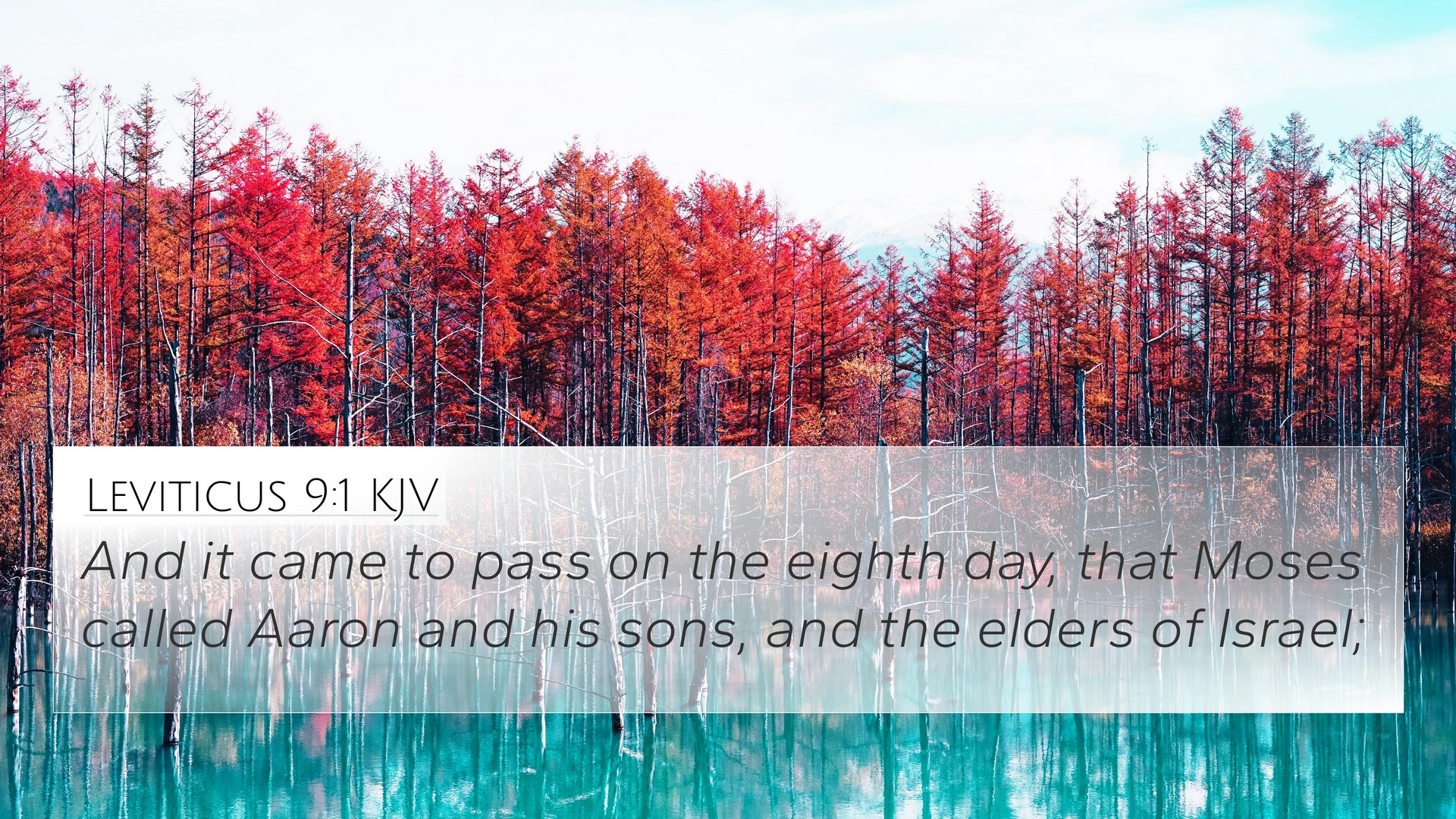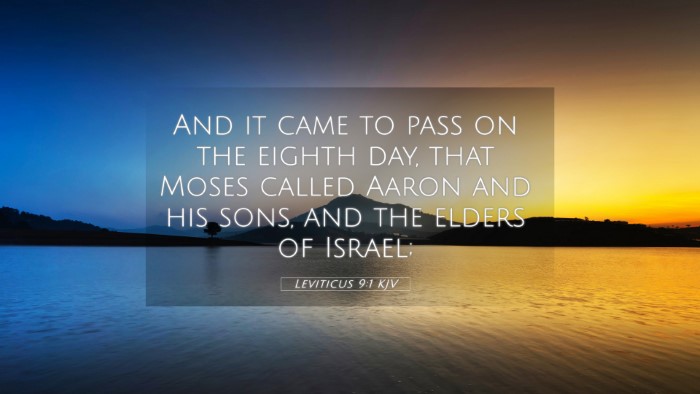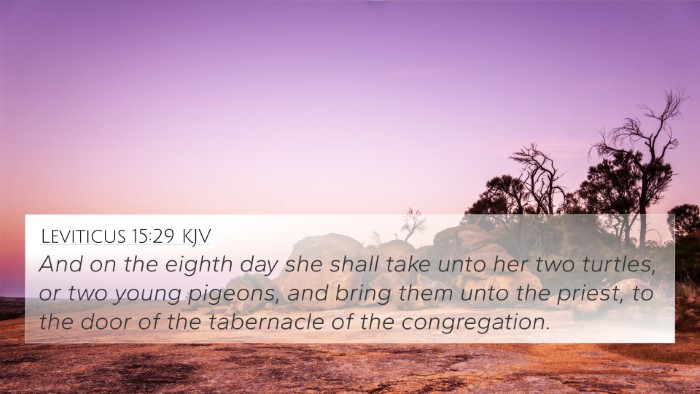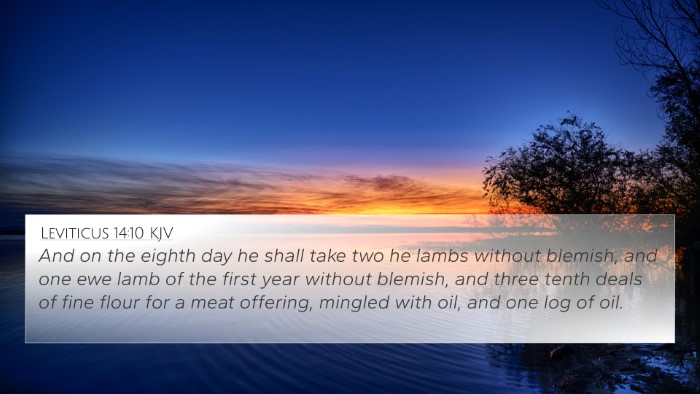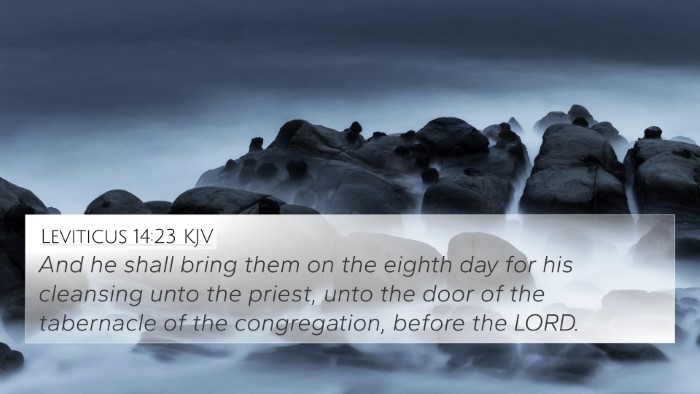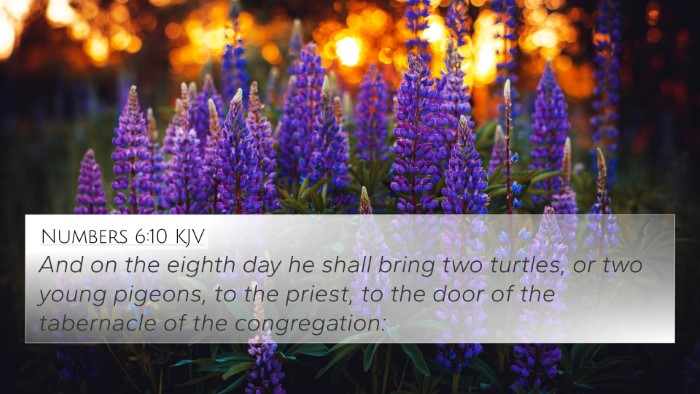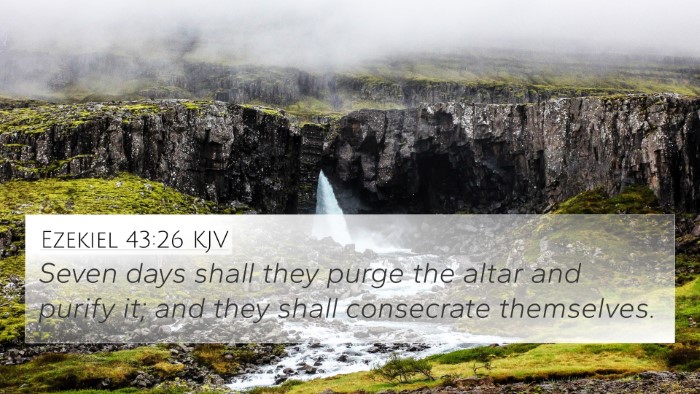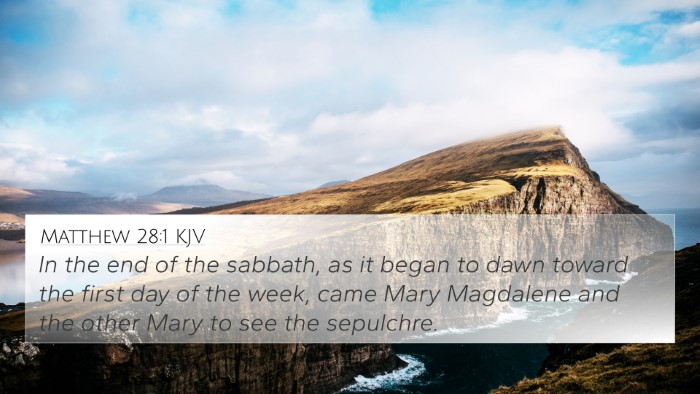Understanding Leviticus 9:1
Leviticus 9:1 marks a significant moment in the life of the Israelites as it describes the inauguration of the priesthood of Aaron and his sons. This verse reads:
"And it came to pass on the eighth day, that Moses called Aaron and his sons, and the elders of Israel."
This verse initiates a crucial series of events that establish the ceremonies and rituals central to the worship of God in the Tabernacle. The following summary combines insights from renowned public domain commentaries.
Verse Analysis
In this verse, there are several aspects to consider:
- Timing: The mention of "the eighth day" signifies the culmination of a week of consecration, pointing towards God's orderly plan and the importance of designated time in worship.
- Roles Established: Moses calling forth Aaron and his sons emphasizes the establishment of the Levitical priesthood, highlighting the importance of leadership and service in spiritual matters.
- Community Involvement: The inclusion of "the elders of Israel" indicates that the whole community was involved and witnessing this pivotal moment, reflecting the collective nature of worship and its significance to the community.
Theological Insights
Various commentators elucidate deeper theological themes:
- Matthew Henry: He observes that this event demonstrates God’s acceptance of the priesthood and the initiation into sacrificial service to Him. It sets the stage for the significant role of atonement and priestly intercession.
- Albert Barnes: Barnes highlights the importance of the congregation in witnessing the ceremony, signaling community accountability and the shared experience of divine worship.
- Adam Clarke: Clarke notes the divine instructions provided to Moses, emphasizing the importance of obedience to God's commands in setting up the framework of worship.
Cross-References
To gain further insights into Leviticus 9:1, it is beneficial to consider its inter-Biblical connections:
- Exodus 28:1: The description of the priesthood being established.
- Exodus 40:12-15: The consecration of the priests corresponding with rituals involving Aaron and his sons.
- Hebrews 5:1-4: New Testament reflection on the high priesthood, linking back to the Old Testament priestly roles.
- Leviticus 8:33-36: The preceding rituals leading up to the eighth day.
- Numbers 3:10: Further establishment and duties of the priests.
- 1 Peter 2:9: A New Testament perspective on the priesthood of believers.
- Romans 12:1: The exhortation to present our bodies as living sacrifices, akin to the sacrificial framework being instituted.
- Malachi 2:7: The role of the priest as a messenger of the Lord, reinforcing the importance of priestly duty.
- Revelation 1:6: The inclusion of all believers as a royal priesthood, echoing the themes of worship initiated in Leviticus.
Thematic Connections
The themes present in Leviticus 9:1 resonate throughout the entirety of Scripture, showcasing how the Old Testament laws and priesthood foreshadow Christ’s ultimate sacrifice:
- Worship and Sacrifice: The importance of structured worship through sacrifices is a theme that continues through the Bible, culminating in Christ’s ultimate sacrifice (John 1:29).
- Holiness and Consecration: The call to be set apart for God's purposes remains a foundational theme, echoed in the New Testament (1 Peter 1:15-16).
- Community and Faith: The role of the community in worship and obedience reflects the interconnectedness of believers, which is a recurring theme in both testaments.
Exploration of Themes through Cross-Referencing
Cross-referencing these themes can enrich an understanding of how Levitical practices inform New Testament teachings:
- How to use Bible cross-references: By exploring themes such as sacrifice and priesthood, believers can connect Leviticus with New Testament teachings.
- Bible concordance and cross-reference guide: Utilizing these tools allows for deeper exploration of inter-Biblical dialogue between the old and new covenants.
- Building chains of reference: By identifying recurring themes such as atonement and worship, one can create a comprehensive understanding of biblical content.
Conclusion
Leviticus 9:1 encapsulates the initiation of a sacred order that is woven throughout Scripture, establishing a lineage of worship and intercession that finds its fulfillment in Jesus Christ. By engaging with cross-references and thematic analysis, believers can deepen their comprehension of the rich tapestry of the Bible's teachings.
